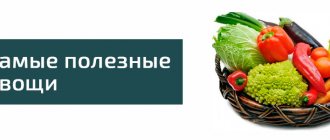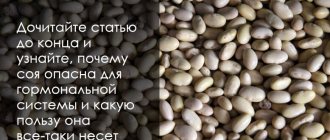Ascorbic acid is an essential vitamin that is necessary for the functioning of all metabolic processes. This substance is not synthesized in the body, and its excess is excreted daily in the urine, so it is very important to ensure an adequate supply of the nutrient. The daily intake of vitamin C depends on gender, age, and the presence of concomitant diseases. In this article you will learn how much ascorbic acid should be taken by adults and children, pregnant and lactating women, and athletes.
California Gold Nutrition, Gold C, Vitamin C, 1000 mg, 240 Vegetarian Capsules
from 975 ₽
More details
Why does the body need vitamin C?
The substance circulates in the blood in small quantities, but its role for the proper functioning of the human body and protection against various diseases cannot be overestimated. Ascorbic acid performs a number of important functions:
- Neutralizes free radicals, protects cells from oxidative stress, thereby reducing the risk of developing cancer pathologies.
- Participates in the formation of collagen and other structural elements of the skin, so observing the daily requirement of vitamin C is necessary to maintain youth and beauty.
- Strengthens the walls of blood vessels, prevents bleeding from mucous membranes and gums, and prevents loosening and destruction of teeth.
- Stimulates immunity, increases the formation of interferon and antibodies. Protects the body from bacterial and viral infectious diseases.
- Improves the absorption of iron and calcium, promotes recovery after a serious illness or sports injury.
The acid is useful for the functioning of internal organs: it enhances the exocrine function of the pancreas, normalizes bile secretion, and improves the processes of digestion and absorption of food. In people at high risk of atherosclerosis, the vitamin is involved in maintaining a normal ratio of beneficial and harmful lipids and prevents the deposition of cholesterol plaques on the walls of blood vessels. The nutrient is also important for the functioning of the central and peripheral nervous systems.
Fruits and berries
| Product | Vitamin C content per 100 g |
| Rosehip dry/fresh | 1200/650 mg |
| Black currant | 200 mg |
| Sea buckthorn | 200 mg |
| Kiwi | 180 mg |
| Red rowan | 100 mg |
| Orange | 60 mg |
| Grapefruit | 45 mg |
| Lemon | 40 mg |
| Mandarin | 38 mg |
| Raspberries | 25 mg |
| A pineapple | 20 mg |
| Cowberry | 15 mg |
| Cranberry | 15 mg |
| Cherries | 15 mg |
| Peach | 10 mg |
| Watermelon | 7 mg |
| Grape | 6 mg |
| Pomegranate | 4 mg |
Daily norms
Physiological daily nutrient intakes are measured in milligrams (mg). In order to accurately determine the concentration of a substance in the blood, a special chromatographic analysis is performed. Normal values are in the range of 4.6-14.9 mg/l. The need for vitamin C varies among people of different ages and gender. Recommended dosages of acid may vary for special conditions, such as pregnancy and lactation, chronic diseases, respiratory infectious diseases.
How much vitamin C should you drink (video):
For babies
In newborns, the norm is 30 mg of vitamin C per day. The nutrient is involved in the growth of bones and cartilage tissue, stimulates metabolic reactions. Children 6 months to 1 year need 35 to 40 milligrams per day. Ascorbic acid enters the child’s body in sufficient quantities through breast milk and complementary foods, so additional administration of vitamin supplements at an early age is prohibited.
In childhood
The daily intake of vitamin C varies depending on the age of the child:
- in children from one to 7 years of age, the daily requirement ranges from 45 to 50 mg;
- primary and secondary schoolchildren need to receive 60-70 milligrams of acid;
- recommended dosages for teenage girls are 70 mg;
- for boys – 90 mg.
The substance is necessary for proper physical formation and development of mental abilities.
For men
A man needs to receive from 70 to 100 mg of ascorbic acid daily. If the nutrient intake is insufficient, in addition to standard symptoms, sexual dysfunction may occur. Compliance with the daily requirement of vitamin C in men ensures the production of functionally active sperm, increases sperm volume and normalizes libido.
For smokers, a 25% increase in dosage is required.
For women
The daily dose of vitamin C is 65-75 milligrams. Ascorbic acid is very important for the female body: it maintains the beauty of hair and skin, prevents brittleness and splitting of nails. The absorption of the substance significantly worsens when taking hormonal drugs simultaneously, so women who use oral contraceptives need to increase the dose by 10-20 mg.
Solgar, Ester-C Plus, Vitamin C, 500 mg, 100 Vegetarian Capsules
from 928 ₽
More details
During pregnancy
In pregnant women, part of the ascorbic acid is spent on the needs of the unborn child, so the daily dose must be increased. The minimum daily intake of vitamin C for women is 85 mg, but doctors recommend that most pregnant women receive about 100 milligrams of the active substance. It is advisable that most of the dose of ascorbic acid come from natural sources; vitamin supplements should only be taken after a full examination and a prescription from your gynecologist.
During lactation
For the formation of breast milk, increased concentrations of all vitamins and microelements are needed, so women during lactation are advised to receive 120-130 mg of acid daily. It is undesirable to exceed the recommended doses of vitamin C per day, as this can lead to allergic reactions in the child.
In older people
The daily intake of vitamin C for an elderly person who does not have severe chronic diseases in the stage of decompensation does not differ from standard recommendations and is 75-90 mg. In weakened or malnourished elderly patients, the daily need for ascorbic acid is determined individually by the attending physician.
In professional athletes
The nutrient is necessary for the functioning of the muscular-ligamentous system and the skeletal system, which is especially important for people who are exposed to heavy physical activity. The daily dose of vitamin C for athletes ranges from 100 to 400 mg, the maximum allowable dosage is recommended during preparation for competitions, as well as during the recovery period after injuries.
For colds
At the first signs of a cold or acute respiratory viral infection, doctors recommend increasing the daily intake of vitamin C to 1000 mg in adults, and to 500-600 milligrams in adolescents (learn more). In large quantities, acid stimulates the destruction of viral and bacterial microorganisms, reduces the duration of the disease and the severity of symptoms.
Now Foods, C-1000, 100 tablets
from 585 ₽
More details
Getting micronutrients from food
Natural foods contain vitamins, minerals and trace elements that have a positive effect on human health. In addition, there is dietary fiber, which is simply irreplaceable for ensuring normal digestion. These fibers reduce the risk of heart-related diseases.
In order to protect yourself and consume all the necessary nutrients, you should always monitor your diet. The daily bustle does not always allow this to be done, so very often a person feels weak and drowsy (caused by a deficiency of micronutrients).
Signs of vitamin excess and deficiency
With a long-term lack of ascorbic acid in the body, the functioning of the gastrointestinal tract, immune and respiratory systems is disrupted. The most severe manifestation of hypovitaminosis is scurvy, but this disease is now extremely rare. The main symptoms of vitamin deficiency:
- bleeding gums and loose teeth;
- frequent appearance of bruises;
- slow wound healing;
- dryness and flaking of the skin;
- irritability, sleep disturbances;
- pain in muscles and joints.
The substance is well excreted in the urine even when taking maximum therapeutic dosages, so signs of hypervitaminosis develop only when the daily norm of vitamin C is regularly exceeded by more than 1000 mg. In such a situation, the functioning of the pancreas may be disrupted, and in people with a deficiency of the red blood cell enzyme system, hemolysis may develop. The first signs of excess ascorbic acid in the body are abdominal pain, nausea and loss of appetite.
What are vitamins?
They can be divided into two main groups:
- Fat soluble. Over time, they accumulate in the human body, excesses are deposited and can reach a critical level. This category includes vitamins of groups A, E, K, D. They should not be abused.
- Water soluble. This includes all the microelements of group B, as well as vitamin C, biotin and choline. They are characterized by lower concentrations, so they accumulate in the body more slowly.
Recommended dosages
The recommended daily intake of vitamin C for medicinal purposes (in the form of special dietary supplements or tablets) is higher than the standard daily dose. It is not advisable to prescribe ascorbic acid on your own, as it can cause side effects. After examining the patient and receiving laboratory results, the doctor selects individual treatment regimens. The table below shows acceptable therapeutic dosages of vitamin C for various purposes.
| Patient group and treatment goal | Amount of vitamin, mg/day |
| Preventive use in adults and children over 14 years of age | 100 |
| Preventive treatment for children 6-14 years old | 50 |
| Treatment of ascorbic acid deficiency in adults | 400-500 |
| Treatment of hypovitaminosis in children over 4 years of age | 150-450 (depending on age) |
| Treatment of hypovitaminosis in pregnant women | 300 |
| Treatment of colds in adults | 1000 mg for the first 2 days, then 500 mg |
B vitamins: side effects
Because B vitamins are water-soluble, it is unlikely that you will be able to get too much of these nutrients from food or even by taking a vitamin supplement.
However, taking supplements containing excessively high and unnecessary amounts of B vitamins can lead to serious side effects.
- High doses of B3 (niacin) can lead to vomiting, high blood sugar, skin inflammation, and even liver damage.
- Additionally, high doses of B6 can cause nerve damage, photosensitivity, and painful skin lesions.
- Another side effect of B-complex supplements is that it can turn your urine a bright yellow color. This color of urine sometimes shocks people, but it is not dangerous - your body is simply getting rid of excess vitamins that it is not able to use.
Although taking B vitamins is generally safe, sometimes taking these compounds in excessive doses can cause serious side effects.
Best Vitamin Supplements
To replenish the daily requirement of vitamin C, various pharmacological preparations are produced: in the form of tablets and dragees, effervescent tablets, syrups for children. When choosing a vitamin preparation, you should pay attention to the nutrient content in one tablet, the presence of artificial flavors or preservatives.
TOP 3 supplements with ascorbic acid:
★★★★☆
Rainbow Light, Gummy Vitamin C Slices, Tangerine Orange Flavor,…
893 ₽
More details
★★★★☆
California Gold Nutrition, Gold C, Vitamin C, 1000 mg, 60 Vegetarian Capsules
296 ₽
More details
★★★★☆
California Gold Nutrition, Gold C, Vitamin C, 1000 mg, 240 Vegetarian Capsules
961 ₽
More details
Where can I buy
Domestic-made medications with vitamin C are available in regular pharmacies and online stores, but the quality of these supplements may be questionable. Effective imported dietary supplements for replenishing the daily requirement of vitamin C are sold at inflated prices, so it is more profitable to purchase them on the iHerb international trading platform.
This site presents products from premium manufacturers from the USA and Europe, and prices for supplements are 30-50% lower due to the absence of intermediaries and trade markups. The store provides fast and reliable delivery methods all over the world, and there is a free delivery option to Russia. When choosing products, you can sort them by rating and number of customer reviews, and competent consultants will help you decide on the right supplement.
Special offer for our readers - 10% discount on the first order on iHerb. To activate it, follow the link or copy the promotional code AGK4375 into the special field when checking out the parcel in the cart.
What are B vitamins
B-complex supplements typically contain all eight B vitamins in one tablet. B vitamins are water soluble, which means that the human body does not store or accumulate them. For this reason, it is extremely important to get these nutrients through your diet every day. B vitamins have many important functions and are vital to maintaining good health.
B vitamins include:
B1 (thiamine)
Thiamine plays an important role in metabolism, helping convert nutrients into energy. The richest food sources containing thiamine include pork, sunflower seeds and wheat germ.
B2 (riboflavin)
Riboflavin helps convert food into energy and also acts as an antioxidant. The best sources of riboflavin: organ meats, beef and mushrooms.
B3 (niacin)
Niacin plays a role in cell signaling, metabolism, and DNA production and repair. The best sources of niacin: chicken, tuna and lentils.
B5 (pantothenic acid).
Like other B vitamins, pantothenic acid helps the body obtain energy from food and is also involved in the production of hormones and cholesterol. Liver, fish, yogurt and avocados are all good sources of pantothenic acid.
B6 (pyridoxine)
Pyridoxine is involved in the metabolism of amino acids, the production of red blood cells and the creation of neurotransmitters. Among the foods rich in pyridoxine are chickpeas, salmon and potatoes.
B7 (biotin)
Biotin is essential for the metabolism of carbohydrates and fats and regulates gene expression. Yeast, eggs, salmon, cheese and liver are some of the best sources of biotin.
B9 (folate)
Folic acid is essential for cell growth, amino acid metabolism, red and white blood cell production, and proper cell division. It can be found in foods such as leafy greens, liver and beans, or in supplements as folic acid or metafolin.
B12 (cobalamin)
Perhaps the best known of all the vitamins, B12 is vital for neurological function, DNA production and red blood cell development. B12 occurs naturally in animal products such as meat, eggs, seafood and dairy products.
Although these vitamins have different characteristics, they all have unique functions and are needed in different amounts. B-complex supplements typically contain all eight B vitamins conveniently packaged into one tablet.
Consequences of overdose
An excess of ascorbic acid in the body is a fairly rare occurrence. The confusion may be due to the fact that often an individual allergic reaction of a particular person is mistaken for symptoms of an overdose. Allergies can occur even if the daily vitamin intake is observed. It manifests itself in the form of skin rashes, abdominal pain, and patients also complain of weakness and decreased performance.
Overdose often occurs in people with kidney disease, when it is impossible to remove excess amounts of the nutrient. The absolute toxic dose for vitamin C is 10 g. Excess acid is manifested by the following symptoms:
- severe cramping abdominal pain, heartburn;
- diarrhea;
- red spots all over the body;
- increased excitability, insomnia;
- sharp pain in the lower back caused by blockage of the ureter with oxalate stone;
- decreased blood clotting.
If such signs appear, you should stop taking the supplement and seek medical help as soon as possible. Before the doctor arrives, you need to rinse your stomach, drink at least a liter of clean water, and you can take adsorbents.
Vegetables and greens
| Product | Vitamin C content per 100 g, mg |
| Red bell pepper | 250 |
| Parsley | 150 |
| Broccoli | 135 |
| Brussels sprouts | 120 |
| Dill | 100 |
| Cauliflower | 70 |
| Spinach | 55 |
| White cabbage | 45 |
| Sorrel | 43 |
| Radish | 25 |
| Tomatoes | 25 |
| Asparagus | 20 |
| Potato | 20 |
| cucumbers | 10 |
| Beet | 10 |
| Carrot | 5 |
Natural Sources of Vitamin C
Ascorbic acid is mainly found in foods of plant origin. They need to be included in your diet to avoid hypovitaminosis. TOP 7 products with the highest concentration of the substance (table):
| Name | Amount of nutrient, mg per 100 g of product |
| Dried rose hips | Up to 1500 |
| Black currant | 250 |
| Red hot pepper | 250 |
| bell pepper | 120 |
| Cauliflower | 75 |
| Strawberries | 65 |
| Lemon | 50 |
Although fresh fruits contain up to 250 mg of the nutrient per 100 g, it is difficult to get your entire daily dose of vitamin C from food sources. This is due to the rapid destruction of acid under the influence of oxygen, ultraviolet rays, and slow heating. To get the maximum benefit from the products you need to follow some rules:
- when cooking vegetables, they must be thrown into already boiled water to avoid prolonged heating;
- Place lemon slices into slightly cooled tea;
- It is advisable to eat sliced fruit immediately; do not leave fruit slices exposed to air.
The daily intake of ascorbic acid varies among people of different ages and gender; large doses are indicated in the treatment of hypovitaminosis and some chronic diseases. To benefit from taking vitamin C supplements, you must strictly adhere to the dosages prescribed by your doctor. You should not change the number of tablets or frequency of administration on your own, as this may cause unwanted reactions.
How do you replenish ascorbic acid reserves in the body? Write in the comments.











